Vice President Harris Stands on the Shoulders African Heads of State Who Graduated from HBCUs and PBIs and
“Trod the Stony Road” to the Presidency of a Nation
HBCU students, administrators, faculty, staff, and actively engaged graduates (of whom there are 7 million!)—along with so many other leaders of economic, cultural, social, fraternal, and faith institutions at home and around the world—are full of excitement about the Kamala Harris for President campaign. Many are working indefatigably to ensure that Vice President Harris becomes President Harris.
Kamala Harris would be the first HBCU graduate—as well as the first African American and Southeast Asian woman—to serve as U.S. president. But others of African ancestry have paved the way for a President Harris. She would have not only former U.S. presidents as mentors but the support of presidents, past and present, of other countries, including the following HBCU graduates.
HBCUs have contributed tremendously to shaping the political and economic landscape of Africa. Their graduates have become heads of state, business leaders, health care professionals, engineers, and environmentalists, just to name a few.
Here are four African presidents who attended HBCUs or PBIs. The living presidents and supporters of past presidents are eager to advance their interests with the United States and advance American interests in their countries. They want to increase trade as well as advance economic, environmental, and humanitarian interests, and work toward a more sustainable, peaceful, and just world. They are eager to work with a future President Harris and her administration.
Nnamdi Azikiwe
First President of Independent Nigeria
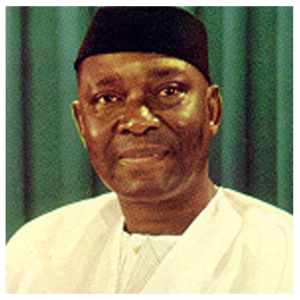
Nnamdi Azikiwe was the first president of independent Nigeria. Born in Nigeria in 1904, he came to the United States in 1925 and earned bachelor’s and master’s degrees from Pennsylvania’s Lincoln University, the nation’s first degree-granting HBCU. Today, Lincoln University educates students in small learning environments. Its diverse, international student body studies in a learning community “built on a culture of innovation and excellence,” and its graduates are prepared to lead or compete in graduate school.
Nnamdi Azikiwe also attended Howard University, founded by Congress in 1867. The Freedmen’s Bureau provided most of the university’s early financial support. In 1879, Congress approved a special appropriation. The charter, amended in 1928, authorized an annual federal appropriation for construction, development, improvement, and maintenance. Today, Howard is one of the nation’s leading research universities, “dedicated to educating students from diverse backgrounds at the undergraduate, graduate, and professional level, with a particular focus on African American students, as well as those of all other racial and ethnic groups from the United States and around the world.”
After completing his graduate degree at the University of Pennsylvania, Nnamdi Azikiwe later returned to Nigeria. He became the third and first Black governor-general of Nigeria in 1960 and the nation’s first president in 1963. President Azikiwe established the Eastern Nigeria Development Corporation, which built the University of Nigeria at Nsukka, the country’s first indigenous, full-fledged university in 1960. He later served as its president.

Kwame Nkrumah
President of Ghana
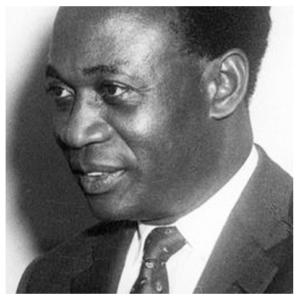
Kwame Nkrumah succeeded friend and mentor President Azikiwe at Lincoln University. They both attended the University of Pennsylvania for their graduate studies. Kwame Nkrumah was the first prime minister of the Gold Coast, from 1952 until 1957. When the Gold Coast gained independence from Britain, Nkrumah became Ghana’s first prime minister and, later, its first president. He was a founding member of the Organization of African Unity and an influential advocate of pan-Africanism. Although—or perhaps because—President Nkrumah studied in the United States, where he experienced firsthand its racially discriminatory laws, policies, and procedures, Nkrumah was anti-American. In a book on neocolonialism, he discussed how U.S. foreign policy caused or perpetuated many of Africa’s challenges. The United States and Ghana have enjoyed friendly relations since the end of Nkrumah’s presidency. He died in 1972.
Hastings Kamuzu Banda
First President of Malawi
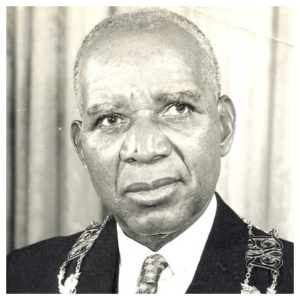
Hastings Kamuzu Banda served as president for Malawi from 1963 to 1994. He received his undergraduate degree from Ohio’s Wilberforce University, the nation’s oldest private HBCU and one of five African Methodist Episcopal Church’s four-year colleges and universities. Banda earned a medical degree from Meharry Medical College, one of the nation’s oldest and largest historically Black academic health science centers and the first medical school in the South for African Americans. The school, located in Nashville, Tennessee, was founded in 1915. During his tenure as president, Banda gifted the institution $1 million. Banda died in 1997.
Bola Tinubu
Grand Commander of the Federal Republic of Nigeria
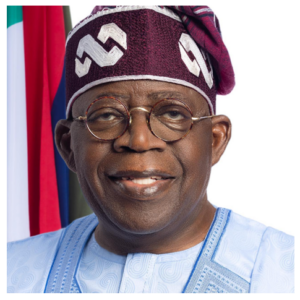
Bola Tinubu has been president of Nigeria since 2023. He was first elected governor of Lagos state in 1999. President Tinubu attended Southwest College (now Richard J. Daley College) in Chicago and later graduated from Chicago State University, a public predominantly black institution (PBI), with a bachelor of science in business and administration in 1979. Chicago State “includes an honors program for undergraduates, and offers bachelor’s and master’s degrees in the arts and sciences.” Chicago State “transforms students’ lives by innovative teaching, research, and community partnerships through excellence in ethical leadership, cultural enhancement, economic development, and justice.” President Tinubu served as an accountant at several US corporations before returning in the 1980s to Nigeria, where he worked at Mobil Oil, later becoming an executive.
The Honorable Gloria B. Herndon, PhD
President and CEO, GB Group Global
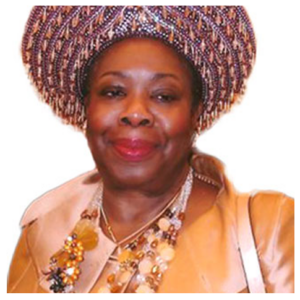
Early in my career, I was accepted into the Foreign Service of the U.S. Department of State. Posting as an economic/commercial officer in Lagos, Kaduna, Kinshasa, Monrovia, and Nouakchott. Along with my regular duties, I sought to further the U.S.-Nigerian trade relationship by strengthening the Nigerian American Chamber of Commerce. I spearheaded initial delegation to the U.S. from Lagos and repeated this success by leading the Kaduna Chamber’s first delegation to the United States as well. While in Nigeria, I wrote my dissertation and taught undergraduate economics courses at Ahmadu Bello University. I received my doctorate in Economics and International Law from Johns Hopkins University. Returning to the United States in the mid-1980’s, I continued service at the State Department as a consultant.
Today, I remain engaged in the economic and political affairs of many African countries as adviser to several presidents around the world, including Sultan of Brunei, Presidents of Malawi, Senegal, Botswana, Zambia, Namibia, Cote D’Ivoire, Burkina Faso, Equatorial Guinea, Ghana, Gabon, Cameron, Tanzania, Kenya, Ethiopia, and the SADC, COMESA and ECOWAS regions in Africa, and through my businesses, and as an adviser to the African Free Trade Zone.
About NAFEO
Contact NAFEO
